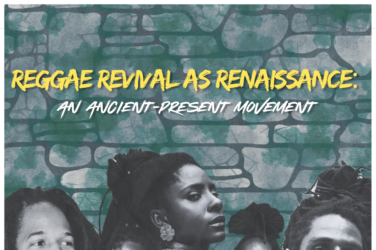The life of a great Jamaican musician who was born with the name Donald Willis Drommond, or more popularly known as Don Drummond, is like a journey through a magnificence and silence space at the same time. These are two things that go hand in hand to those who want to know him.
He is so authentic, his majesty level music playing gives birth to his brilliant works. Don Drummond is one of the most charismatic Jamaican ska musicians. His life was so short, also full of tragedy. He has Schizophrenia. Don died on 6 May 1969, while he was serving time at the mental hospital ‘Bellevue’. This phase of life must be lived after the court found Don guilty of the death of his lover, Anita “Marguerita” Mahfood.
Don was born on March 12, 1934, raised by his mother, Doris Maud Munroe without his father. Don attended Alpha Boys’ School (now Alpha Institute), a school founded and run by Roman Catholic Sisters. This school is also known as a school for “wayward” boys. The discipline instilled in all Alpha Boys’ students is special. This educational institution resembles the Mother to Jamaican music. Many of the great musicians for Jamaica and the world were born from here.
During this school period, Don was known as a quiet, hard-working boy, sparingly talking or smiling – a character that followed him through his life. Don is a bright, diligent, polite and an eager student, also showing an interest in gardening and, of course, music.
After two years of school, he was placed in the school band. Don studied saxophone and euphonium before finally choosing trombone. His talent makes him not need to spend a lot of time studying the trombone.
Alpha Boys’ curriculum has helped shape Don’s basic musical skills. Don’s first music lesson at Alpha Boys’ came from Vincent Tulloch. Don also learned from Reuben Delgado, a music mentor who really believes in Don and his talents. Headley Bennett, one of the music legends who was also Don’s schoolmate at Alpha Boys’ said remembers:
“He was number one, and why I come to that reasoning is because when Mr. Delgado wanted to take a couple of minutes off, for some water or to go to the washroom, he gave Don Drummond the baton. The conductor stick. He used to conduct the band when Mr. Delgado’s not there. That’s how I know he was so talented.”
During this time, Don had lessons on classical composition from Beethoven and Mozart at Alpha Boys’. Don also briefly studied with one of the special trombonists from Jamaica, Carl Masters. Delgado and Masters, as well as fellow schoolmates at Alpha Boys’ played a role in sharpening Don’s musical skills. However, his musical discipline became something that many people around Don highlighted. Sparrow Martins, the versatile musician from Alpha Boys’ tells of:
“There used to be a tree by the band room when I used to be here called the Monkey Tambourine Tree and he used to sit there practicing, or if he was not practicing he would be looking at a piano book. He practiced the trombone out of a piano book, because the piano has the melody and the harmony so you practice that and he would play the part of what the piano played”
The influence of Sister Ignatius as the principal as well as mentor and mother figure for Don is huge. Don knows Jazz and practices hard on his own over the radio after listening to a lesson from Sister Ignatius about music.
Don started his musical career when he was 18 years old. Ernest Ranglin, a major figure in Jamaican music, recommended Don and got him recruited by the Eric Deans Orchestra. Together with the Eric Deans Dean Orchestra, he became a resident at the Colony Club and toured several countries in the Caribbean. He also became a headliner on many occasions with the combos he founded, he also often supported big and famous names playing jazz at that time such as: Baba Motta, Kenny Williams, Lester Hall, Sonny Bradshaw, and Vivian Hall.
Don’s jazzy skills are grandeur, like the statement from Sarah Vaughn who is so fascinated by Don’s playing while he backed her on the show. George Shearing also has the same opinion as Sarah, even Dave Burbeck stopped playing in awe because he was surprised by Don’s extraordinary improvisation at a gig. Delfeayo Marsalis, a world class trombonist with sophisticated playing techniques, wrote down his admiration for Don in the introduction to the book “Don Drummond – The Genius and Tragedy of the World’s Greatest Trombonist” by Heather Augustyn. Also many musicologists put Don in the list of the best trombone players in the world.
The 1950s became the year of recognition for Don’s talent. Not only did he have a special playing technique, he was recognized as a musician who was able to infuse the soul and the feeling into the compositions he played. His knowledge is so fancy, his interest in Jazz and Blues has made him travel into Latin music. These are the things he put in his plays. Don’s composition on minor produces a unique mournful tone and that is his style. He lights the cosmic rays in many of his works. A legacy from Don that provided an important foundation for many Jamaican musicians thereafter.
With The Skatalites, the most Important ska outfit, Don’s reputation as a Jamaican musician shines even more. Don and The Skatalites really put a crucial element for the development of Jamaican music. Together with Tommy McCook the leader, Rolando Alphonso, Lester Sterling, Lloyd Brevett, Lloyd Knibb, Jerry Haynes, Jackie Mittoo, Johnny Moore (and Jackie Opel and occasionally supported by Lynn Taitt and Ernest Ranglin) this outfit brought about a big change in Jamaican music culture. The Skatalites comes with genius works from all the genius members, they bring be-bop, blue-beat, and free-jazz with different dimensions. All the line-up of The Skatalites is another variable that solidifies this outfit to become role models for society, they become the heroes for the working class in Jamaica. The spirit they carry also connects rastafarianism and the cultures such as Burru and Nyabinghi drumming. The Skatalites are the sovereign folklore! And Don Drummond, is a part of this cultural movement.
Before The Skatalites took off to their orbit, and became a worldwide role model to date, Don Drummond had a musical career as an in-house musician for many Jamaica’s musical imprint at that time to meet his financial needs. Clement ‘Coxson’ Dodd was the first producer to hire Don for his Studio One. The producer has an important role in Don Drummond’s musical journey. Coxson is a fan of jazz, which is what makes these two figures close. Their records can be traced through the albums “I Cover the Waterfront” and “Jazz Jamaica at the Workshop”
Don is a genius musician, although mentally he is a very volatile character. Also in the book “Don Drummond – The Genius and Tragedy of the World’s Greatest Trombonist” by Heather Augustyn, it is noted that Don once had destroyed his trombone. Derrick Morgan in this book tells the story that Don once made people silent in silence, he urinated right on the stage. This character change often occurs, in a show Don only stands on the stage for a few sessions without playing any single note with his trombone,the part he has to play. Even though in the last session he did a solo session, of course with his own set that brought the audience a joy!
Don Drummond is a musician from Jamaica who brings rebellious melancholy works, his minor scales are uniquely sad and mystical. Don is a trombone virtuoso who is able to give an exploding major scale touch with joy. Klive Walker in his ‘Dubwise’ book wrote:
“Together with The Skatalites, Don Drummond gave birth to the language of ‘Jamaican Jazz’ by infusion of a certain type of ska – Skatalites ska!”
Don Drummond infused new horizons into Jamaican music through genius and authenticity by his works. Something that became a guide for musicians afterwards. Augustus Pablo‘s ‘Far East’ signature is a great legacy from Don. Bob Marley enjoyed this too, ‘Simmer Down’ wouldn’t be so special without Don’s fantastic intro. The ‘Running Time’ from the album ‘Kaya’ is a testament to Don’s influence on him. Even Bob gave a homage with ‘Crazy Baldhead’, a composition which is a minor version of Don Drummond’s ‘Eastern Standard Time’.
The silent splendor of Don Drummond’s talent is something that is not easy to grasp. However, in the name of the cosmic major & minor, for the glory of the skankers and one-droppers, a mighty truthful Drummond with all the notes of his trombone!
(Sam)





Show Comments